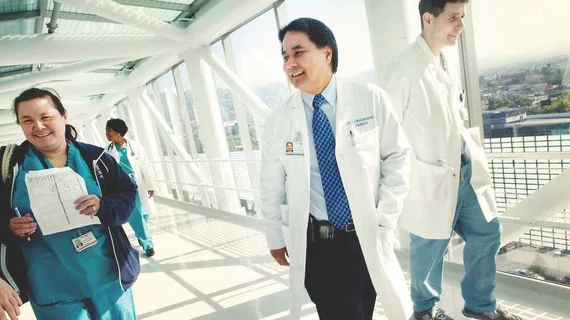Cardiologist takes helm of American Society of Transplantation
Jon Kobashigawa, MD, a veteran cardiologist with the Smidt Heart Institute at Cedars-Sinai, is the new president of the American Society of Transplantation (AST).
Kobashigawa, head of the Smidt Heart Institute’s heart transplant program, has been with AST since 2001. He has also head leadership positions with a variety of other industry groups, including the International Society of Heart and Lung Transplantation and American College of Cardiology.
“As I take on the role of president of the AST, I am inspired by the dedication and passion of our members,” Kobashigawa said in a message to AST members. “Together, we can continue to build on our successes, embrace new opportunities, and overcome challenges to advance the field of transplantation.”
He also listed some of his biggest goals for his time as AST president. He wants to expand the groups “breadth and diversity,” for example, and make teamwork a bigger priority. Kobashigawa also wants to take steps toward increasing interest in careers in organ transplant among trainees who represent the healthcare providers of tomorrow.
Kobashigawa’s colleagues at Cedars-Sinai are excited to see him excel in this new opportunity.
“Dr. Kobashigawa’s experience and passion make him the ideal person to serve as a national and international voice in all matters related to organ transplantation,” Eduardo Marbán, MD, PhD, executive director of the Smidt Heart Institute, said in a statement. “He has already advanced this field greatly through his clinical work and scientific discoveries and continues to be a strong advocate for standardizing decisions and processes related to transplantation.”
“Dr. Kobashigawa was instrumental in the development of our world-renowned medical and surgical program, known for changing the lives of patients previously told they were out of options,” added Christine Albert, MD, chair of cardiology with the Smidt Heart Institute.
The AST often works closely with government officials to develop and fine-tune policies U.S. related to organ transplantation. Kobashigawa will represent the organization in these discussions.

